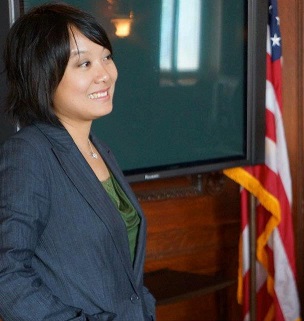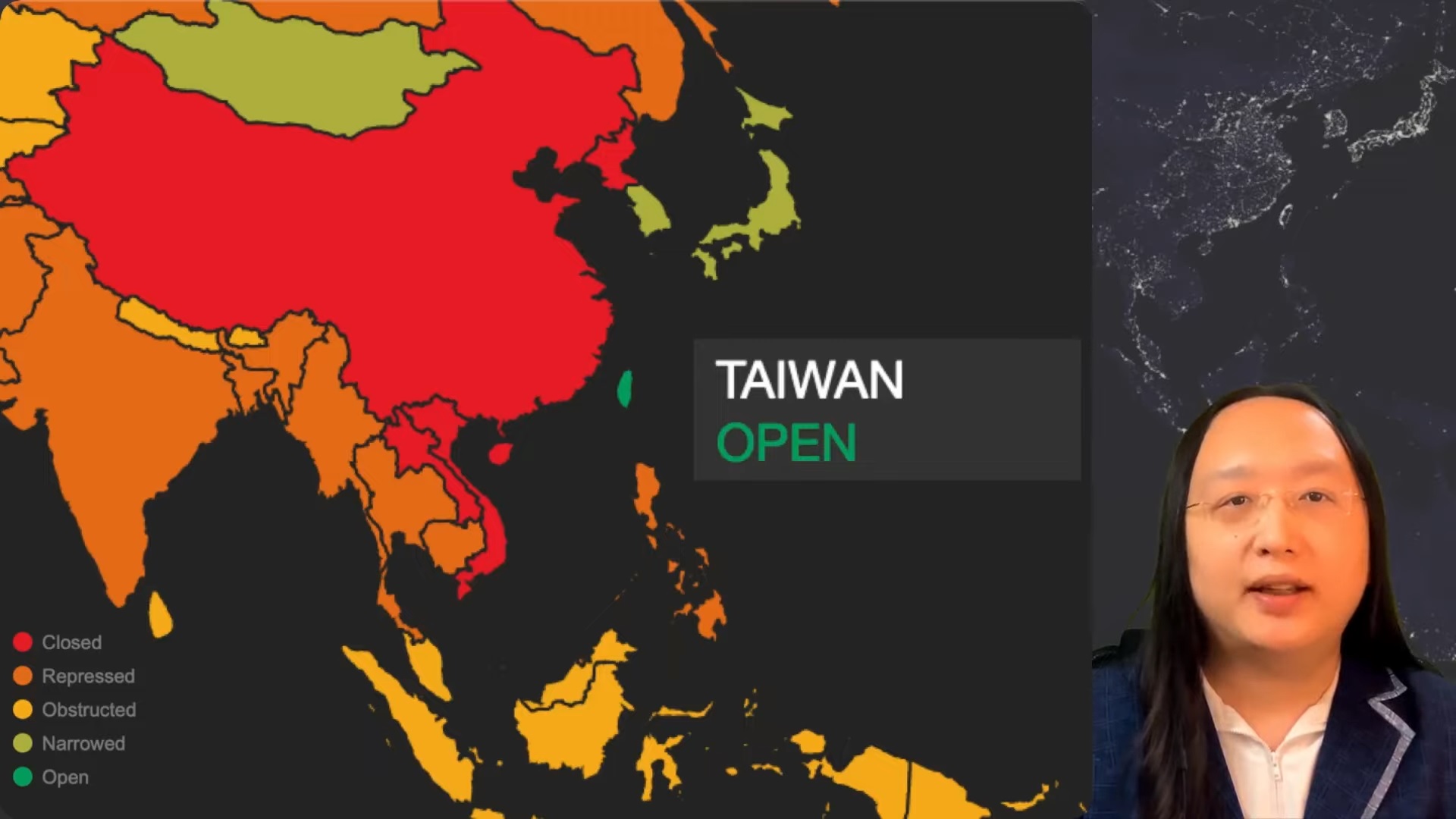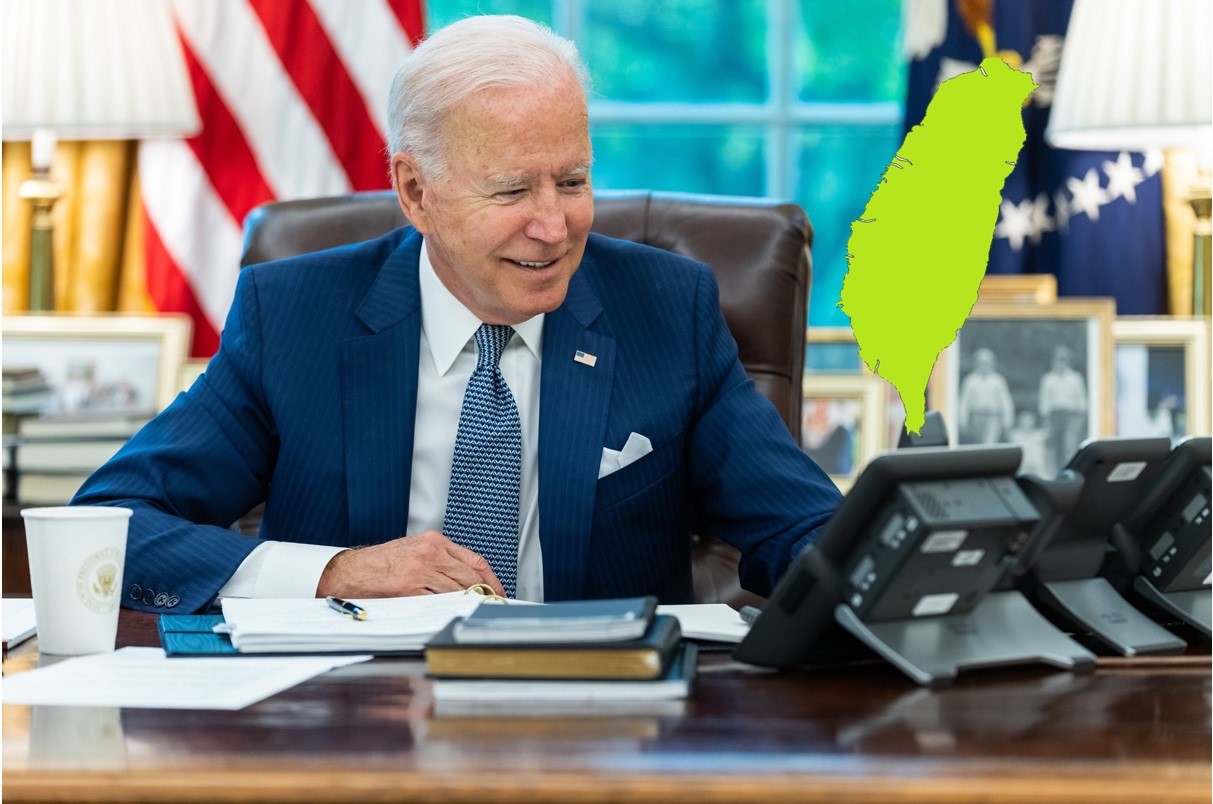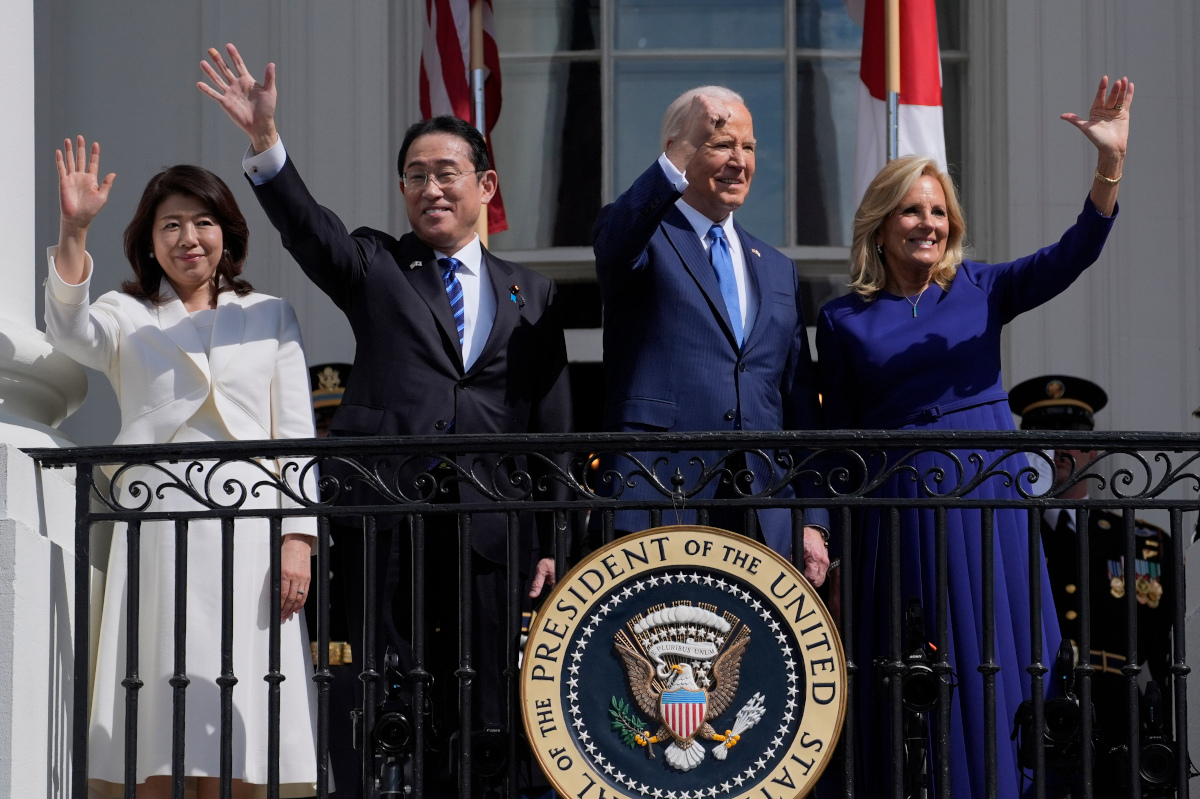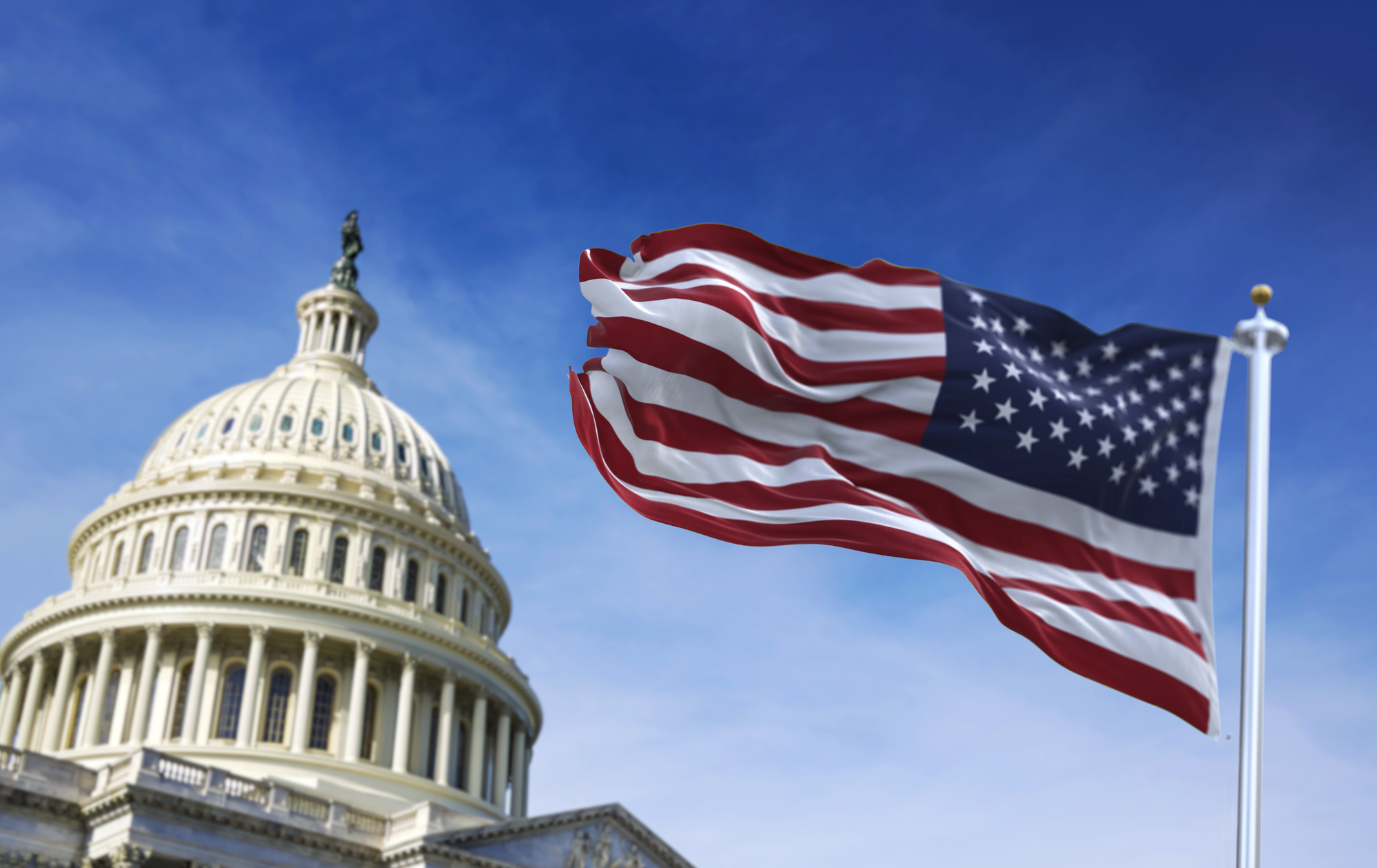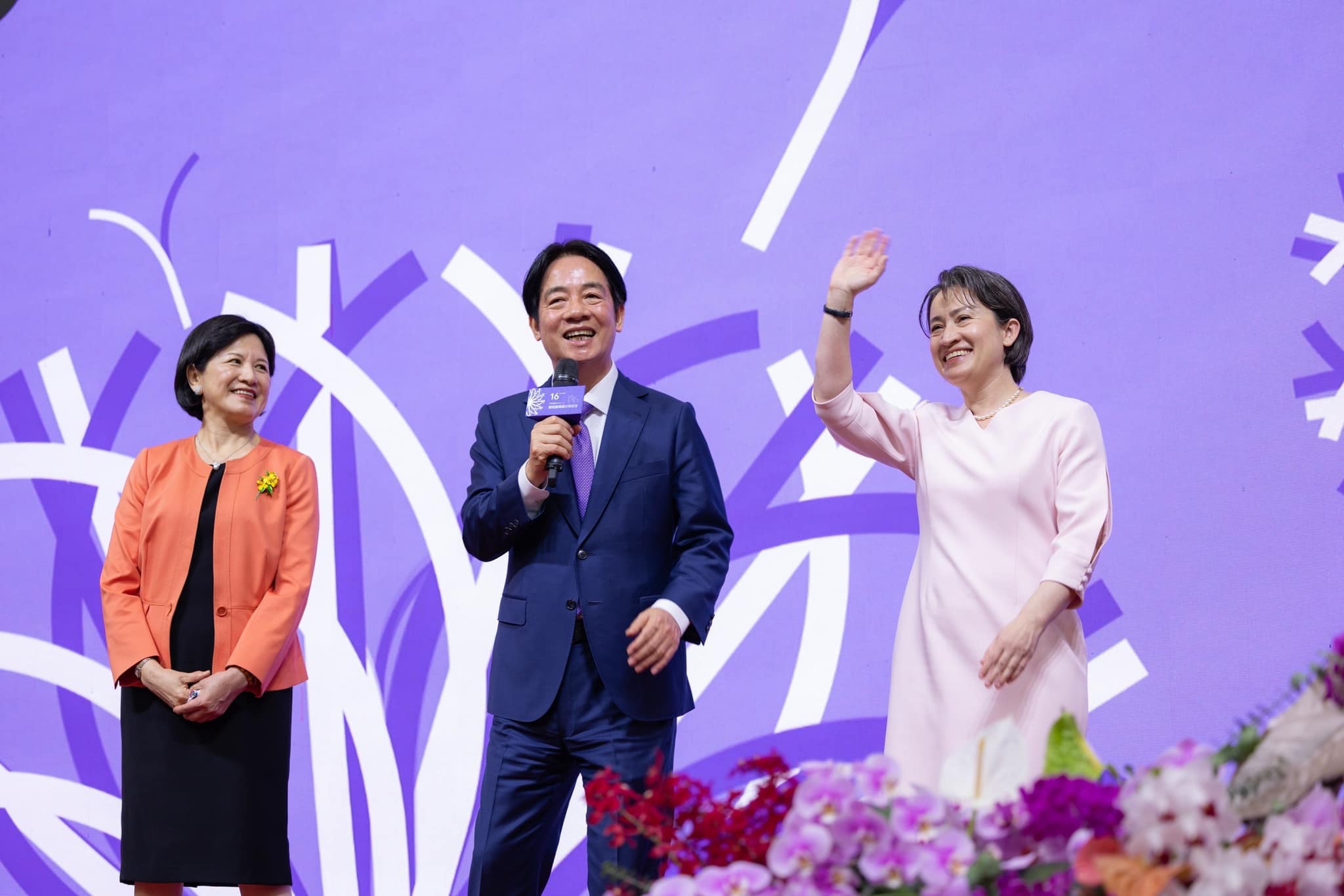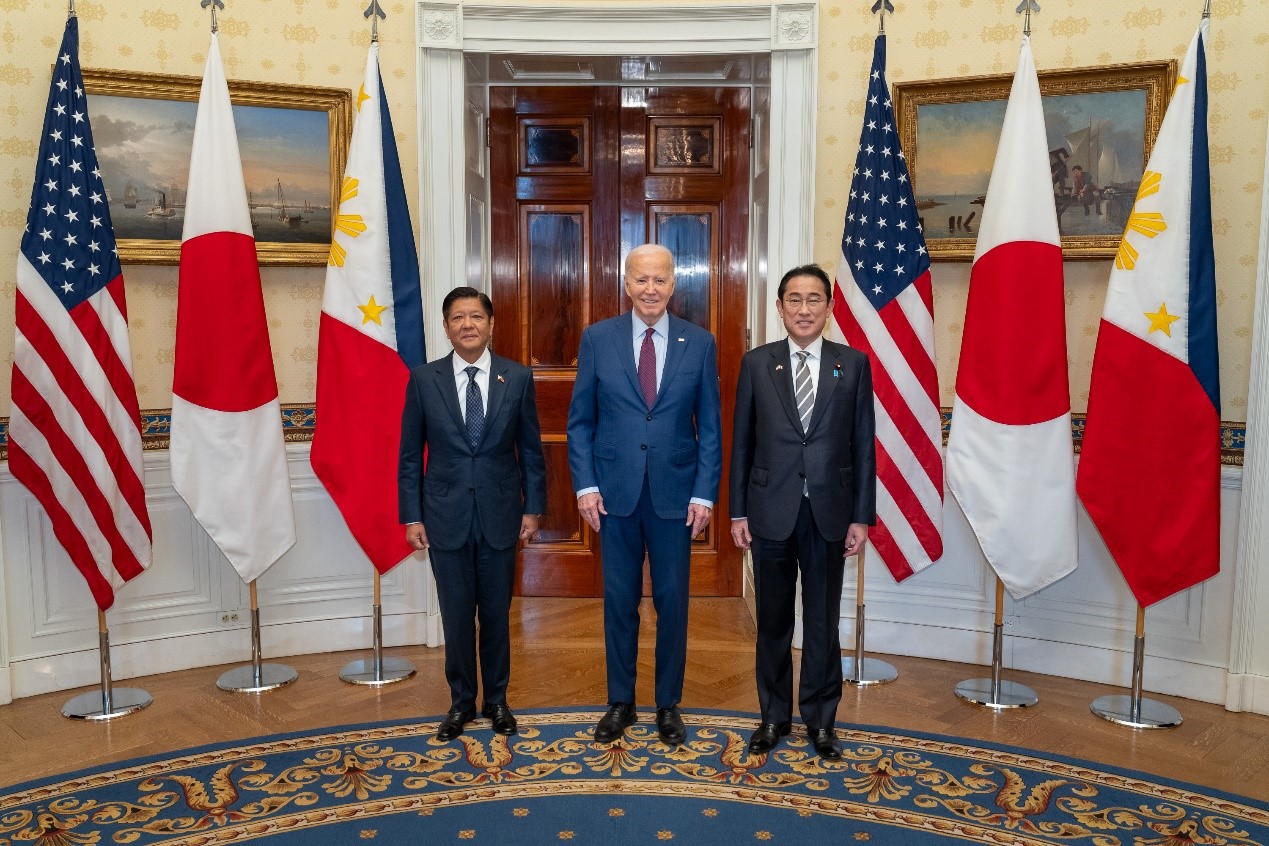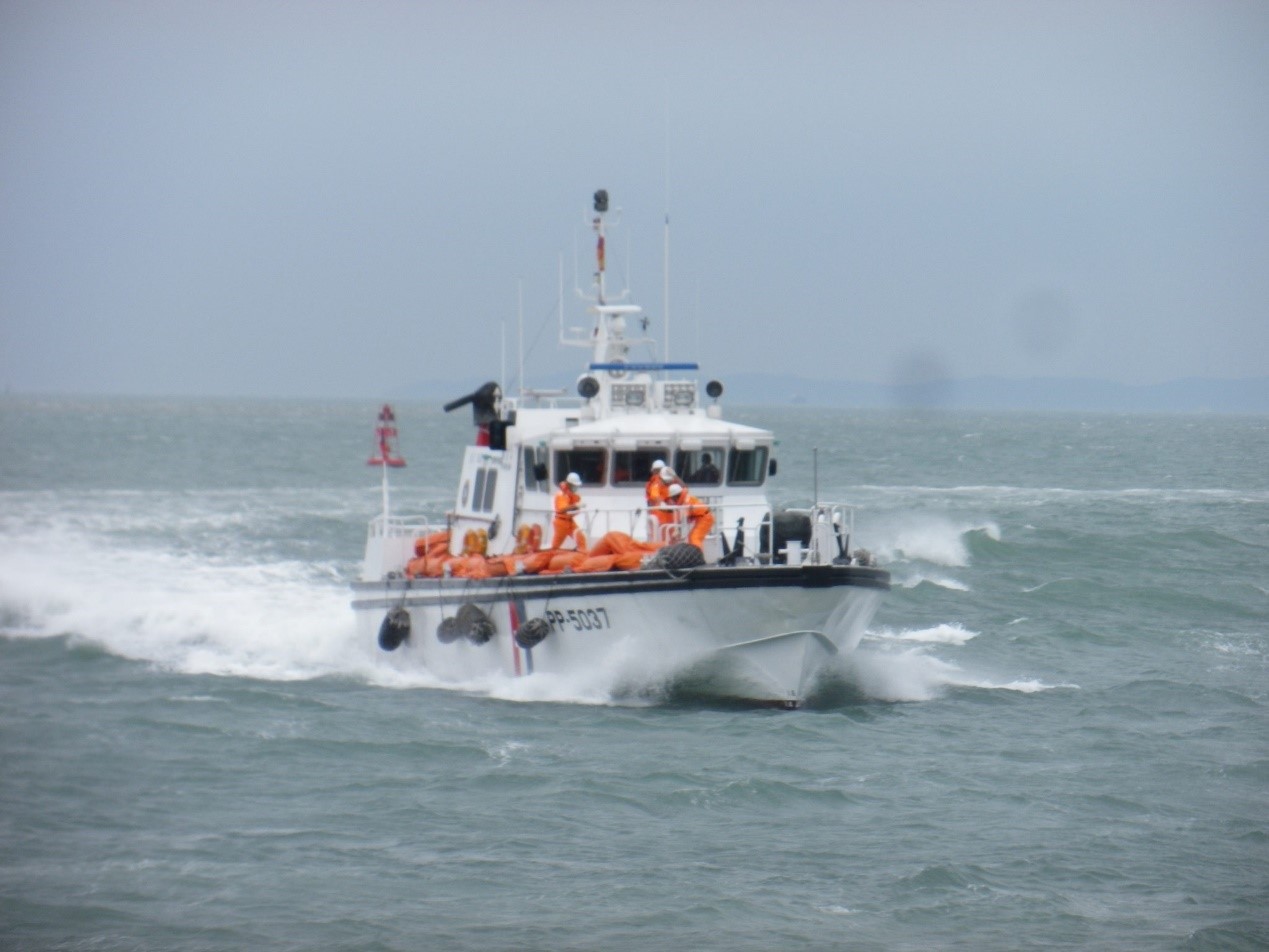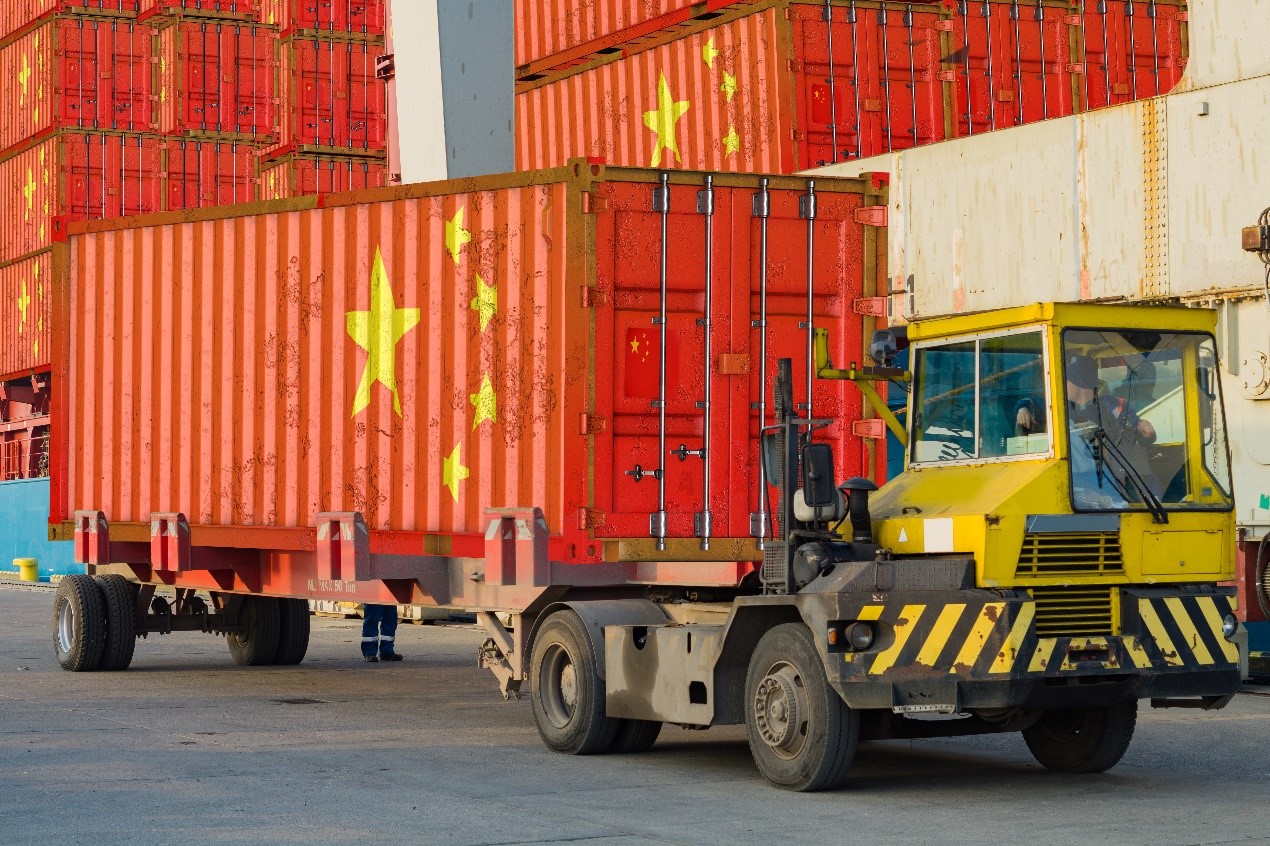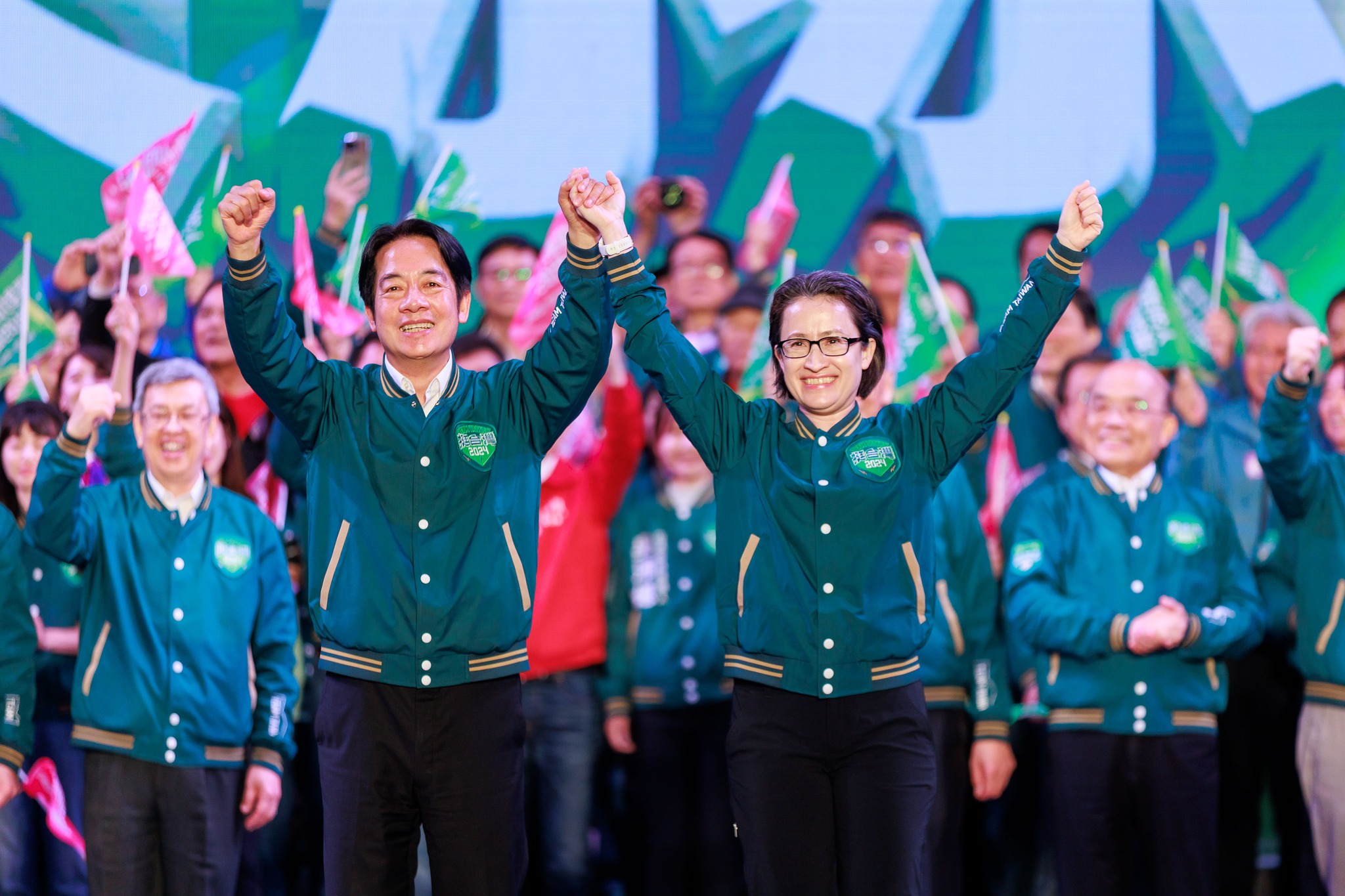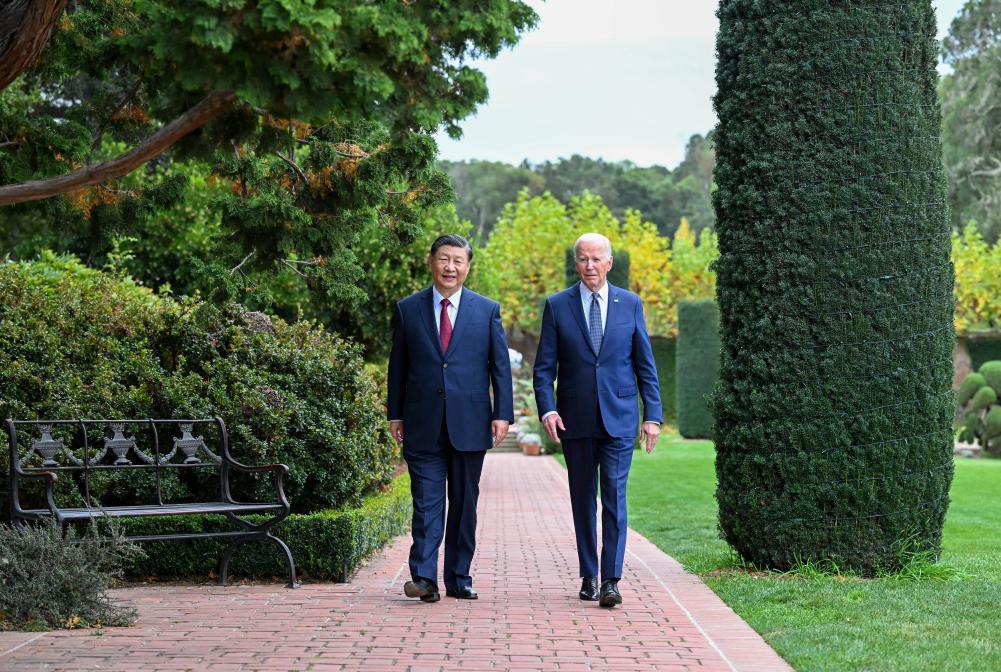In the past two years, as the world was ravaged by COVID-19, Taiwan has also experienced unprecedented threats from the PRC, from military intimidation to authoritarian influence upon elections, trust in democratic institutions and society. Under the leadership of President Tsai, Taiwan has been able to weather most threats while still upholding the ideal of democracy as the best form of government and having a positive outlook on its democratic future. Picture source: PDIS, December 10, 2021, Youtube,
Prospects & Perspectives 2022 No. 5
The Summit for Democracy and the Role for Taiwan
By Ketty W. Chen
January 21, 2022
In the summer of 2019, the democratic candidate for the United States presidential election, Joe Biden, unveiled his foreign policy platform with the vision for “America to restore dignified leadership at home and respected leadership on the world stage.” In his announcement, Biden stated that as president, he would “advance the security, prosperity, and values of the United States by taking immediate steps to review our own democracy and alliances, protect our economic future, and once more place American at the head of the table, leading the world to address the most global challenges.” Taking essential steps to reinforce the democratic foundations of the United States, Biden set the goal that during his first year in office, he would bring together the world’s democracies to not only strengthen democratic institutions within democracies, but also confront the challenge of democracies that are backsliding and forge a common agenda to address threats to democracies’ common values.
For Taiwan, as one of the most advanced democracies within its region — but also one that is under the most severe existential threat from its authoritarian neighbor, the People’s Republic of China — Biden’s platform further opened opportunities for the island nation to deepen its relationship with the new U.S. administration and the rest of the democratic world.
After Biden was elected as the 46th President of the United States, the administration appointed experts and democracy advocates to positions which allowed them to begin preparations for the Summit for Democracy. While tackling one of the worst crises in recent human history, the COVID-19 pandemic and the challenges brought by this outbreak, fulfilling Biden’s campaign promise of bringing democracies together could be described as an ambitious endeavor.
For Taiwan, the aim was to secure a seat at the Summit and also feature Taiwan’s democratic achievements on the international stage. The administration led by President Tsai Ing-wen, who was elected by a landslide to a second term in the beginning of 2020, began its preparations earlier than other democracies in the region and perhaps even in the world.
The Biden administration encouraged democracies to propose a series of commitments and pledges in support of global democratic renewal centered on three themes of the Summit. Those were: (1) strengthening democratic institutions and defending against authoritarianism; (2) fighting corruption; and (3) promoting respect for human rights. These themes also included commitments to combatting disinformation; strengthening electoral integrity; better promoting the human rights of activists, women and girls, youth, LGBTQI+ persons, persons with disabilities, and marginalized populations; addressing drivers of inequality and inequity; strengthening enforcement of financial disclosures and investing in the development, use and governance of technology that advances democracy and human rights. More importantly, the new U.S. administration also aimed to have a strong presence of nongovernmental actors in the Summit. The nongovernmental participants, which included some of the leading NGOs, activists and dissidents, reiterated the U.S. government’s call for commitment in these areas, while encouraging their respective governments to stand up against authoritarian intimidation, kleptocracy and repression.
Due to the waves of COVID-19 infections and the emergence of new variants, the Biden administration announced that the inaugural Summit for Democracy would be a virtual one, with the goal that the second annual Summit for Democracy would be a physical gathering. The three-day inaugural event, held from December 8-10, 2021, included government and civil society representatives from 110 invited states and a supra-national body, the European Union. Among the invitees, Taiwan stood out as the only democratic country with only limited diplomatic recognition from democracies around the world. On the other hand, Taiwan brought the Summit an impressive delegation of participants from a number of ministries, government agencies and nongovernmental organizations. Minister without Portfolio Audrey Tang and Taiwan’s representative to the United States represented the government of Taiwan. Representative Hsiao Bi-khim attended the session with world leaders and President Biden, while Digital Minister Tang delivered Taiwan’s national statement and participated in the session “Countering Digital Authoritarianism and Affirming Democratic Values.” In addition, Taiwan’s National Security Council, the Office of Minister without Portfolio Lo Ping-chen, the Executive Yuan’s Department of Gender Equality, the ministries of Foreign Affairs, Economic Affairs and Justice, the National Human Rights Commission and the Taiwan Foundation for Democracy all had representatives observing the Summit.
Furthermore, representatives from Taiwan’s civil society were not only invited to participate in the Summit, but the Taiwan Foundation for Democracy and the Taiwan Association for Human Rights served on the working groups and steering committee for “Strengthening Democracy and Defending Against Authoritarianism” and “Promoting and Protecting Human Rights.” In the months leading up to the Summit, civil society members from Taiwan worked with civil society organization around the world and the U.S. Department of State on encouraging their governments to commit to specific and actionable commitments to safeguard the quality of their democracy and their democratic institutions, while working to promote human rights. Although the virtual Summit had to be organized very quickly (and some might even say hastily), the Summit successfully brought to the foreground, and fostered conversations on, the common challenges faced by democracies. The Summit also served as a conduit to compel democracies to face the glaring problem of citizen complacency, a trend that has allowed authoritarian regimes to easily influence and polarize democratic societies, and erode the trust citizens have in elected officials and democratic institutions. The Summit ended with President Biden initiating the “Coming Year of Action” toward the physical gathering of democracies in 2022.
The “Coming Year of Action” is also another opportunity for Taiwan to feature its democratic achievements, the advocacy of its civil society, and to offer assistance to democracies in need. For the “Year of Action,” Taiwan’s public and nongovernmental agencies joined strength to offer 62 commitments on issues such as combating corruption, enhancing fiscal transparency, promoting open government and civic participation, countering disinformation, protecting international religious freedom, as well as advancing human and labor rights. Taiwan will also collaborate with the United States and other democracies through the U.S.-Taiwan Consultation on Democratic Governance in the Indo-Pacific Region and the Global Cooperation and Training Framework to promote universal values such a democracy, liberty, and the rule of law in the region and the world.
In the past two years, as the world was ravaged by COVID-19, Taiwan has also experienced unprecedented threats from the People’s Republic of China, from military intimidation to authoritarian influence upon elections, trust in democratic institutions and society. Under the leadership of President Tsai, Taiwan has been able to weather most threats while still upholding the ideal of democracy as the best form of government and having a positive outlook on its democratic future. The Summit for Democracy provided Taiwan and its citizens the opportunity to engage democracies around the world and to make concrete contributions. This, in turn, builds confidence and security for the Taiwanese: the knowledge that they and their country do not stand alone.
(Dr. Chen is Vice President, Taiwan Foundation for Democracy)

